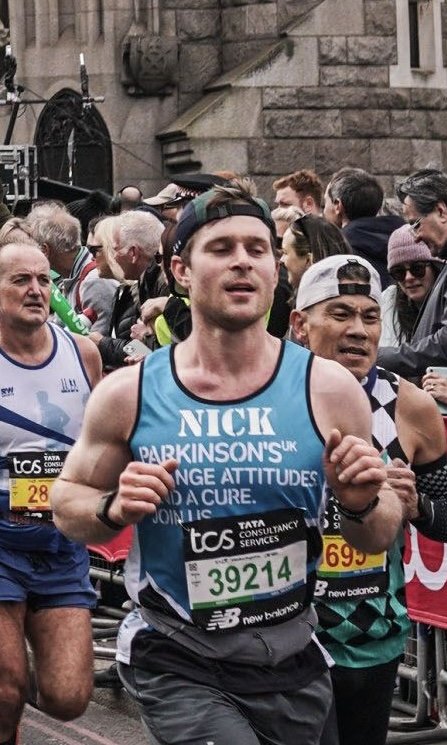
|
Runner Interview |
1. Can you give a brief introduction about yourself?
Hi, I’m Nick Greenhalgh, co-founder of Luca. We're a brain health company, making concussion objective through neurocognitive assessment. I’m sports mad, used to play rugby professionally but now stick to the relative safety of the golf course and marathon running!
2. What inspired you to become an entrepreneur/startup founder?
I wasn’t that kid flogging stuff in the playground or mowing lawns in the summer for money, so it wasn’t obvious to me that I’d end up in entrepreneurship. After pro rugby, I went down the more traditional route and found it pretty uninspiring. I missed the intensity of sport, the unknown and the uncapped upside it offered. Tapping out of the corporate world for a couple of years to do an MBA gave me the headspace to realise I needed to go down this line.
3. Can you describe your startup in a single sentence?
See first answer. I’ll add that objective concussion assessment is massively important, especially in grassroots sport, where there aren’t always medics present. We sadly now know that concussion can have devastating long term neurological effects, and that’s why diagnosis and management needs to be made as accurate and accessible as possible.
4. How did the idea for your startup come about?
Luca originally started out as a mental health app for athletes - think symptom identification tool using questionnaires and wearables data, and then a pathway to expert help on the backend. It was a project I first worked on during my MBA and the original insight came from playing for the university rugby club and seeing a lot of players struggling. I knew the same problem existed in pro sport. We worked with several clients in university sport but also pro sport, and it was our work with British Skeleton that got us thinking about concussion. They do a lot of proactive concussion screening of their athletes to manage load, and that set us off down the brain health rabbit hole!
5. What's the most unique aspect of your solution or business model?
Concussion assessment is an area that’s seen very little technological innovation in the past two decades. Protocols and processes have for sure been tightened up in sport to protect athletes, but that only works if concussions are actually being identified and we know that 50% of all concussions go undiagnosed. We’re developing a suite of cutting edge assessments in order to aid with diagnosis and, perhaps one day, to even do the diagnosis itself
6. What’s the most challenging aspect of building your startup?
It’s all hard but that’s what makes it rewarding. As you’ll have read, we’ve pivoted from mental to more holistic brain health. This has created a challenge in terms of fundraising, as in some ways we've started again from scratch. But we have some great investors, who are very supportive and believe in the direction we’re going. The second is the tech. We’re pushing the needle and it’s going to take a while for the potential of it to be fully realised, so keeping the business funded will be a fun challenge for me.
7. What's the most valuable lesson you've learned as a founder?
Honestly, that this is your journey and you have to take full ownership of it. People want to help, and advice is always flying around but ultimately you have to roll up your sleeves and make things happen, because nobody can build your business but you. Radical ownership and accountability is very important in my opinion.
8. How do you manage work-life balance, especially with the demands of a startup?
I try not to have a sharp distinction between work and life, I like the two to bleed into one another. Google “A master in the art of living” by L.P. Jacks - this is how I try to live.
9. What’s the next big milestone for your startup?
Our concussion product being in the hands of users in a month from now, v exciting! Oh, and closing our current round. We’ll close at the end of June and still have SEIS for you angel investors out there.
10. What advice would you give to aspiring entrepreneurs or startups?
Don’t over think making the decision to jump into it or not. You’re never going to have all the answers at the start, the most important thing is starting and then moving forward, day by day.
11. Any ideas on how we could improve Seed Run?
Perhaps you could have one startup introduce themselves at drinks each time. Tricky thing about networking is that you’ll never meet everybody. How you select those startups, not sure.
Sign in To ask a question

